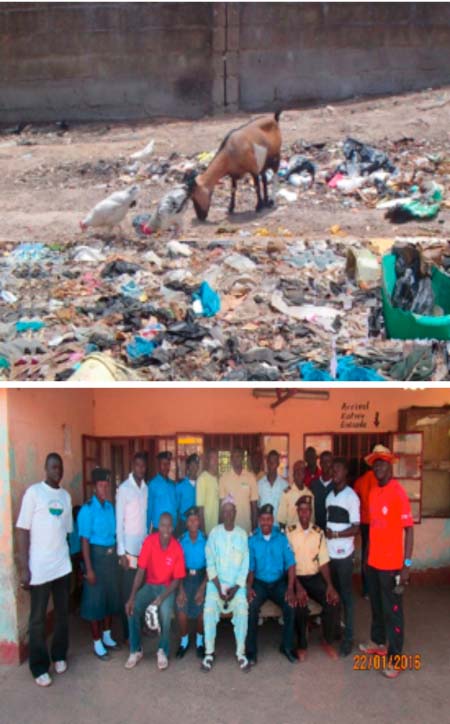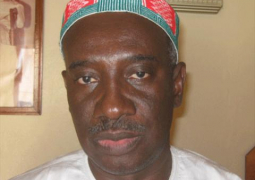
Due to its adverse effects and uncompromising hazards, the Government of The Gambia has on 1 July 2015 banned the use, production and sell of plastics bags in the country.
Njagga Touray recently made these statements during a nationwide sensitisation tour of border posts and community radio stations throughout the country.
He told the gatherings and keen listeners that the country needs the blessing, support and collaboration of all and sundry in an effort to collectively effect the ban on plastic bags that find their way into the nation’s sustainable livelihood support systems.
He added plastic bags do not decompose for many years and, therefore, has potentials to destroy soil structure and affect tree-roots penetration; thus threatens productivity.
He noted that livestock are also killed with other smaller domestic animals when they swallow or ingest it resulting in huge economic loss to farmers.
“Due to improper disposal systems, many stray animals end up consuming plastics and get entangled and suffocate to death.”
Thousands of animals worldwide including cow, goats, sheep, dolphins, turtles, whales, penguins are killed every year due to plastic bags, he added.
Many animals ingest plastic bags, mistaking them for food, and therefore die. The ingested plastic bag remains intact even after the death and decomposition of the animal. Thus, it lies around in the landscape where another victim may ingest it.
“The continuous use of plastic bags threatens our food security as they resist decomposition for decades and becomes a virtual eye-sore in public places,” said the NEA official.
Mr Touray further stated that most plastic wastes find their way into gutters and waterways, and cause a blockage during rainy season and subsequently cause flooding in cities and growth centers.
Sheikh Alkinky Sanyang, an Environmental Education & Communication officer, stated that when plastic bags are burnt or use for fire lighting, which is a very common practice in the country, it releases dangerous chemicals such as Persistent Organic Pollutants which is a casinogenic substance that can cause cancer and other life-threatening diseases.
Furthermore, he said, plastic bags are often misused by putting in it hot foods like “Ebbeh, Café Touba, Nan-Mburrou” etc., underlining that the use of plastic bags to package hot foodstuff in it is very dangerous as it releases the chemical content of the plastic into the food, and can lead to long-term health problems.
Mustapha Touray, a senior security officer, told the sensitization gathering in Farafenni (Kerr Ayib) that the ban on plastic is a right move in the right direction as it reflects on the dangers posed by the use of plastics bags to both human and the environment.
He reiterated that plastic bags are non-biodegradables and can cause serious threat to the fragile eco-system of the country and the environment in general.
This dire situation, he pointed out, warranted the Government of the Gambia to completely ban the importation of plastics into the country with effect from 1st July 2015 and equally announced a zero tolerance on environmental cleanliness to avert the numerous problems related to environmental mismanagement.
During this nationwide sensitization tour, many community radio stations were also utilized with phone-in programmes where keen listeners contributed to the programme.
These local radio FM stations included Paradise FM in Farafenni, GRTS radio in Basse, Brikamabaa Community radio, Soma FM and Kaira FM in Kuloro.
These phone-in radio programmes have generated lots of listenership who contributed through phone calls and expressed satisfaction on the ban as it renders more harm than good.
Speaking earlier on behalf of the combined forces stationed at that Sabi border post in URR, senior Customs officer, Modou Tamba thanked the Government and the NEA for their foresight and commitment in averting serious environmental hazards by banning the usage, sale, and consumption of plastic bags. He recalled that as a constitutional requirement, they would never allow into entry in this country any plastic bags through the official and official borders.


